Forced conversions in Pakistan represent a grave violation of human rights and religious freedoms. While women and girls are disproportionately affected, cases involving men and boys have also been reported. This systemic issue continues to plague the country, particularly affecting Christian and Hindu communities. Despite constitutional guarantees and international commitments, the lack of effective legislation and social protections perpetuates this crisis.
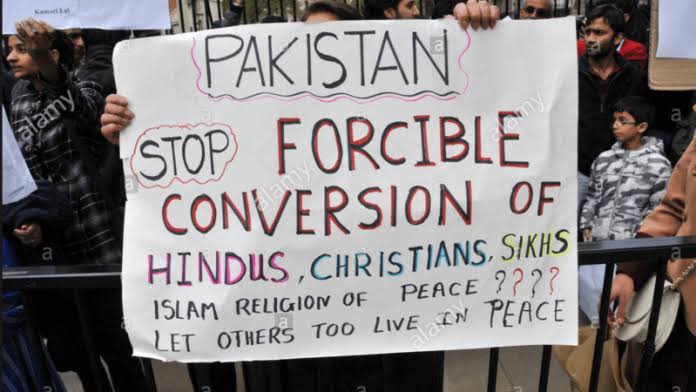
Why Are Forced Conversions Not Criminalized in Pakistan?
Pakistan has failed to criminalize forced conversions due to resistance from conservative and religious groups. It remains unaddressed due to deep-rooted societal, political, and religious dynamics. Religious lobbies wield significant influence over lawmakers, often blocking legislative efforts. Bills proposing protections, such as the Protection of Rights of Minorities Bill in 2020, were rejected due to pressure from Islamist groups.
The lack of political will stems from fear of backlash and accusations of being anti-Islamic. Pakistan’s Constitution, while guaranteeing religious freedom, often leaves room for interpretation that benefits the majority. This reluctance enables perpetrators to act with impunity.
Law enforcement agencies show bias when dealing with forced conversion cases. Victims and their families face threats, humiliation, and delays in the cases.
Why Is This Practice Prevalent in Pakistan?
Forced conversions are widespread due to entrenched patriarchal norms, religious intolerance, and weak legal systems. Minority communities, particularly Christians and Hindus, face systemic discrimination and economic disadvantages. Their marginalization makes them vulnerable to exploitation.
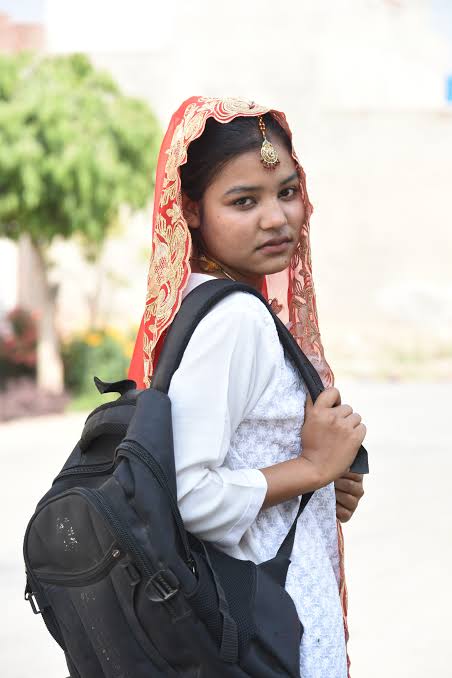
Social acceptance of religious dominance fuels this practice. Many view conversions of non-Muslims as acts of religious duty. Perpetrators often justify their actions as religious obligations, further normalizing forced conversions.
Law enforcement agencies often fail to intervene effectively. Police bias against minority communities exacerbates the problem, discouraging victims from seeking justice.
The Exodus of Hindus from Sindh
The Hindu community, particularly in Sindh, faces severe threats from forced conversions and social persecution. Thousands of Hindus have left Sindh, citing insecurity and discrimination. The practice of abducting and converting Hindu girls to Islam has created widespread fear.
Hindu families often report cases of abduction and forced conversion to the authorities, but they rarely receive justice. Weak enforcement of existing laws leaves them with little recourse. Many Hindus seek refuge in India or other countries, fearing for their safety and dignity.
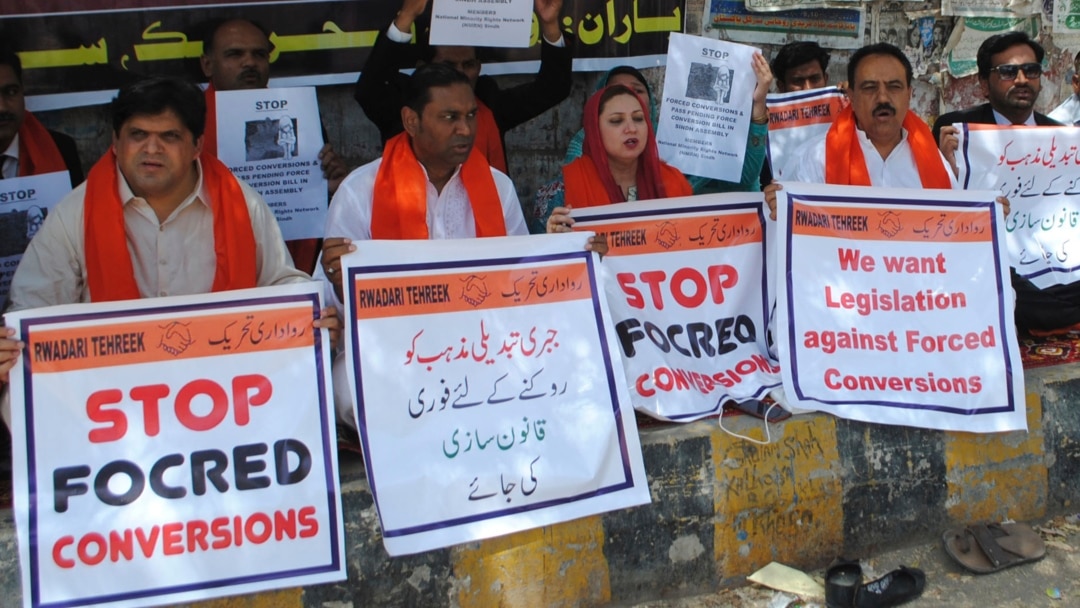
Forced Conversions in Pakistan Beyond Rural Areas
Forced conversions are not confined to rural areas like Punjab and Sindh. Contrary to common perceptions, this crime is prevalent in urban settings as well, including Karachi.
The Link Between Forced Conversions and Child Marriage
Forced conversions are often linked to child marriage, where perpetrators first convert the victim’s faith to conceal their true age. The conversion certificate often lists a false age, which helps in concealing the child’s identity and aids in the marriage process. This phenomenon not only involves religious manipulation but also serves to sensationalize the ordeal of forced conversions.
Once victims of forced conversions are recovered, the state machinery, including judges and shelter staff, often imposes pressure on the victim to remain Muslim. Pakistan’s predominantly religious society makes religious faith a critical issue, especially when the victim’s agency to profess their own religion has already been violated by the perpetrator. This cultural and societal pressure on victims continues even in the shelters, where recovery does not guarantee freedom from religious influence.
Notable Cases of Forced Conversions in Pakistan
Arzoo Raja Case (2020)
Arzoo Raja, a 13-year-old Christian girl from Karachi, was abducted in 2020, forcibly converted to Islam, and married to her abductor, a man three times her age. Despite evidence of her being a minor, including her birth certificate, initial court rulings favored the marriage under claims of her “willing consent.
Maira Shahbaz (2020)
Maira Shahbaz, a 14-year-old Christian girl from Faisalabad, was abducted at gunpoint by three men. She was forcibly converted to Islam and married to one of her abductors. After escaping, Maira revealed that she had been subjected to threats and blackmail. Her family’s legal fight for her return was met with resistance, and the case highlighted the serious issues of forced conversions and child marriage in Pakistan.

Neelam Kumari (2020)
Neelam Kumari, a 16-year-old Hindu girl from Sindh, was abducted by a Muslim man named Arshad. She was converted to Islam and married to him. The family’s attempts to file a complaint were met with police indifference, and the case went unnoticed until the media raised awareness. The legal process remains slow and uncertain.
Farah Shaheen (2020)
Farah Shaheen, a 12-year-old Christian girl from Faisalabad, was abducted and forced to convert to Islam. She was married to her abductor, Khizar Ahmad Ali, and subjected to horrific conditions, including being shackled and confined in a cattle pen. Christian activists intervened, and Farah was rescued months later. However, her abductor managed to evade arrest.
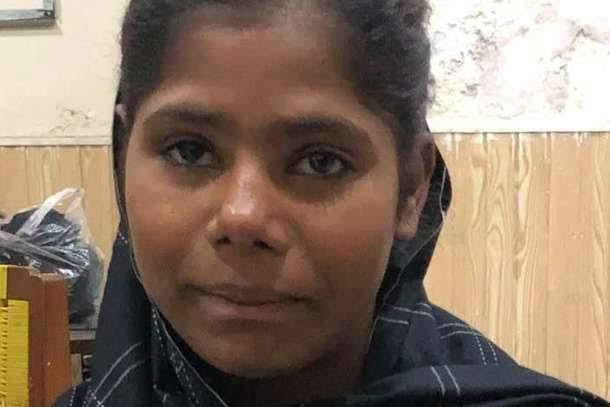
Persicla Dilawar (2022)
Persicla Dilawar, a 15-year-old Christian girl from Faisalabad, was abducted by a Muslim man, Muhammad Qasim. She was forced to convert to Islam and marry him. Despite the family’s pleas and filing complaints with authorities, they faced intimidation and threats. The case demonstrated the growing trend of forced conversions in Punjab.
What Pakistan Needs to Do to Protect Freedom of Religion
Pakistan must take immediate steps to uphold religious freedom and protect its minority communities. Comprehensive legislation addressing forced conversions is urgently needed. This law should include age limits for conversions, strict penalties for coercion, and safeguards for victims.
- Training for Law Enforcement Agencies: Law enforcement agencies must receive training to handle cases of religious minorities sensitively and impartially. Police officers should face accountability for negligence or bias in such cases.
- Promoting Interfaith Dialogue: The government must foster interfaith dialogue to promote tolerance and understanding among religious communities.
- Educational Reforms to Combat Discrimination: Educational reforms are essential to remove hate speech and discriminatory content from curricula.
- Upholding International Commitments: International commitments, such as the International Covenant on Civil and Political Rights, demand Pakistan to ensure religious freedom for all citizens.
- Commitment to Religious Freedom: The government must demonstrate its commitment to these obligations by addressing forced conversions decisively and show its commitment to ensuring religious freedom for all citizens.
- Pakistan must establish separate shelter homes for minority victims of forced conversions. These shelters should exclusively employ staff from minority communities to ensure the victims’ religious rights and freedom are respected. Mixing minority victims with a majority Muslim population in shelters can further violate their religious and personal freedom.
These cases show the wide-ranging issue of forced conversions in Pakistan, particularly targeting vulnerable girls from minority communities.
The Role of Civil Society in Combating Forced Conversions
Civil society in Pakistan has played a significant role in highlighting the issue of forced conversions. Activists, human rights organizations, and minority groups have consistently raised their voices against these injustices. They organize protests, provide legal assistance to victims, and document cases of forced conversions.
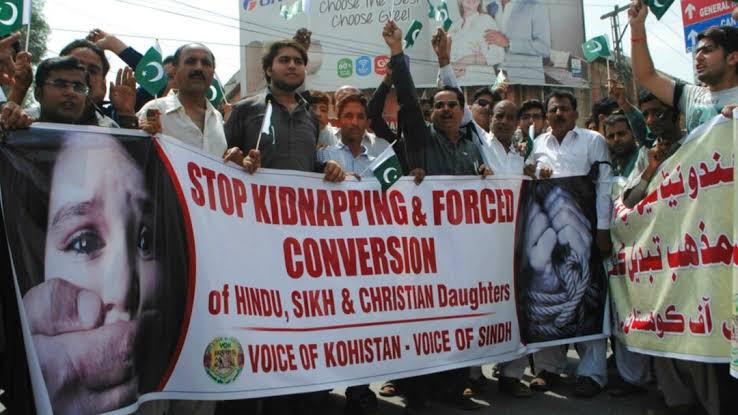
However, their efforts face substantial resistance from powerful religious lobbies and societal apathy. Activists often face threats and intimidation when advocating for minority rights. Legal battles are lengthy, expensive, and often met with judicial biases, making justice elusive.
Christian and Hindu activists work tirelessly to amplify the voices of victims and demand legislative reforms. Organizations like the Centre for Social Justice regularly release reports on forced conversions, pushing for accountability. Despite these efforts, civil society’s impact remains limited without robust government support.
The lack of financial and institutional backing weakens their campaigns. In many cases, the authorities dismiss their concerns, leaving them powerless to bring meaningful change. Civil society needs stronger alliances with policymakers and international organizations to increase its influence.
The legal team of Minority Rights March, a grassroot movement, has handled over a dozen cases, including the Arzoo Raja case, since 2019. In six years, they recovered one Hindu, one Sikh, and nine Christian victims.
The Role of International Pressure
International pressure on Pakistan to address forced conversions has been sporadic but largely insufficient. United Nations experts have raised concerns over the rising cases of forced conversions and religious persecution. They have urged Pakistan to take concrete measures to protect minority communities.
The Universal Periodic Review (UPR) of Pakistan’s human rights record included recommendations to curb forced conversions. However, Pakistan has shown limited commitment to implementing these recommendations. Despite being a signatory to international treaties like the International Covenant on Civil and Political Rights, the country fails to meet its obligations.
Countries like the United States and the European Union have occasionally voiced concerns over religious freedom in Pakistan. In 2021, the U.S. designated Pakistan as a “Country of Particular Concern” for severe violations of religious freedom. However, these measures lack consistent follow-up and enforcement.
Pakistan must recognize that protecting religious freedom is not just a domestic issue but a global human rights concern. Without collective action, forced conversions will continue to tarnish the nation’s reputation and harm its most vulnerable citizens.
Related Stories:
The Persistent Issue of Forced Conversions in Pakistan
Untold Stories: Pakistan’s Honest Minority Narratives
Unheard Pakistan: Prominent Minority Achievements
Pakistan under the scanner of UN committee over rights violations
















